3 Tricks for children to take their medicines
Taking medicine can be a nightmare for children, especially those suffering from cancers or chronic diseases. The Pharmacy Department of the Hong Kong Children’s Hospital (HKCH) uses three tricks to help child patients who are reluctant or unable to gulp down medicine, in order to enhance their medication adherence and safety.
Freddie Poon, Department Manager (Pharmacy) at HKCH, states that a vast variety of medicines are used in paediatrics, but suitable formulations for children can be lacking in the local market. To cope with this challenge, they have adopted various dispensing methods such as changing pills into with liquid form, and looked around for suitable dispensing equipment. Calvin Mo, Pharmacist of HKCH, adds that, “Children with uncommon inborn errors of metabolism may need to take over a dozen vitamin pills each day, which is painful. To make it easier for them to take the medicines, we design individualised medication regimen based on their specific condition. In addition, our Pharmaceutical Care Centre offers education to patients and parents on the properties and side-effects of different medicines, as well as the proper ways to mix at home, in order to ensure efficacy and safety.”
Freddie Poon, Department Manager (Pharmacy) at HKCH, states that a vast variety of medicines are used in paediatrics, but suitable formulations for children can be lacking in the local market. To cope with this challenge, they have adopted various dispensing methods such as changing pills into with liquid form, and looked around for suitable dispensing equipment. Calvin Mo, Pharmacist of HKCH, adds that, “Children with uncommon inborn errors of metabolism may need to take over a dozen vitamin pills each day, which is painful. To make it easier for them to take the medicines, we design individualised medication regimen based on their specific condition. In addition, our Pharmaceutical Care Centre offers education to patients and parents on the properties and side-effects of different medicines, as well as the proper ways to mix at home, in order to ensure efficacy and safety.”
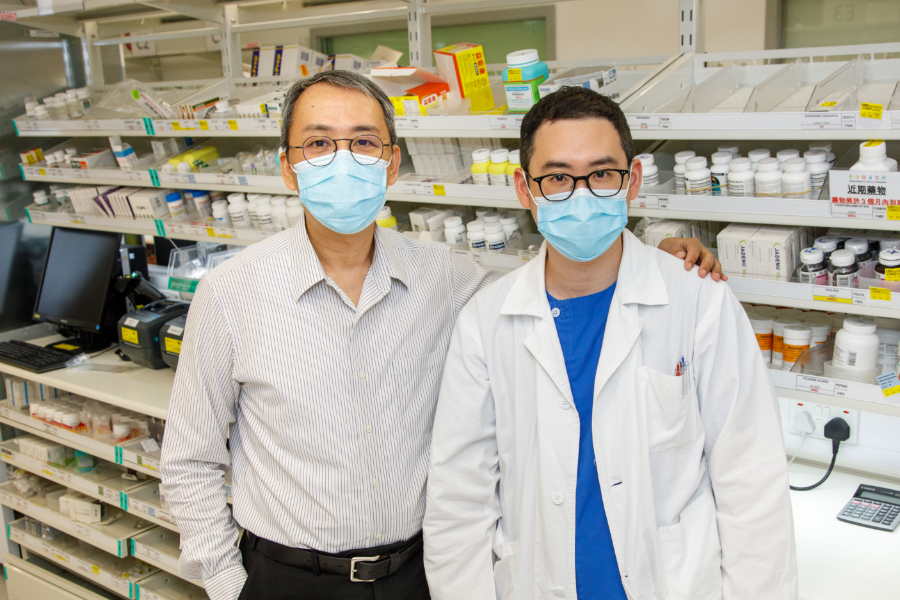
Trick 1: Take medicine with juice
Young patients tend to say no to bitter medicines, and parents may crush pills into easy-to-swallow bits, which makes them even more bitter. Actually, some medicines can be taken together with juice, milk or yogurt, such as melatonin used for treating sleep disturbances. Still, it is not recommended to randomly choose a drink without seeking advice from a pharmacist, as this may undermine the medicine’s efficacy.
Trick 2: Turn pills into liquid
Chronic patients like those with heart and kidney diseases are usually treated with large amount of medicines. To help young patients who cannot swallow pills, the Pharmacy Department would take reference of foreign literature and compound pills into liquid form while maintaining their efficacy. After the pharmacist has verified the name and quantity of the medicine, the dispenser will put the required pills into a grinder. A suspending solution will then be mixed with the powdered pills in a mortar until fully dispersed. Lastly, the mixture will be shaken in a graduated cylinder. The final product will be refrigerated.
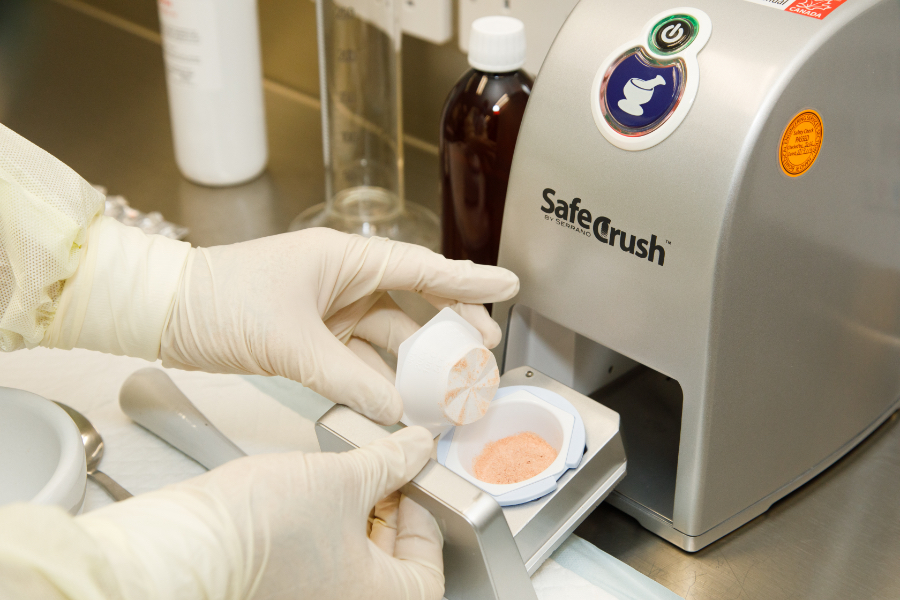
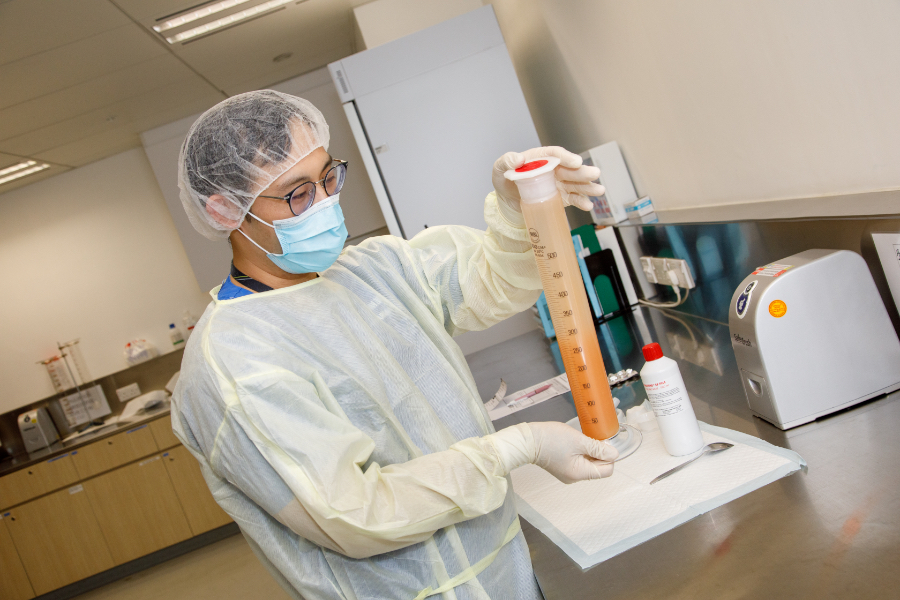
Trick 3: Dissolve pills in a sealable pill crusher
When no suitable formulation of oral chemotherapy medicines is available, parents may inevitably need to crush the pills at home. To protect them from inhaling the fine particles of these high-risk medicines during the process, the Pharmacy Department has sourced a sealable pill crusher from overseas. Parents are taught to put the pills in the pouch and connect it with a water-filled syringe. After crushing the pills into powder, they will inject water through the syringe into the pouch and mix with the powder until it is evenly dispersed. The right amount of liquid will be extracted for the children.
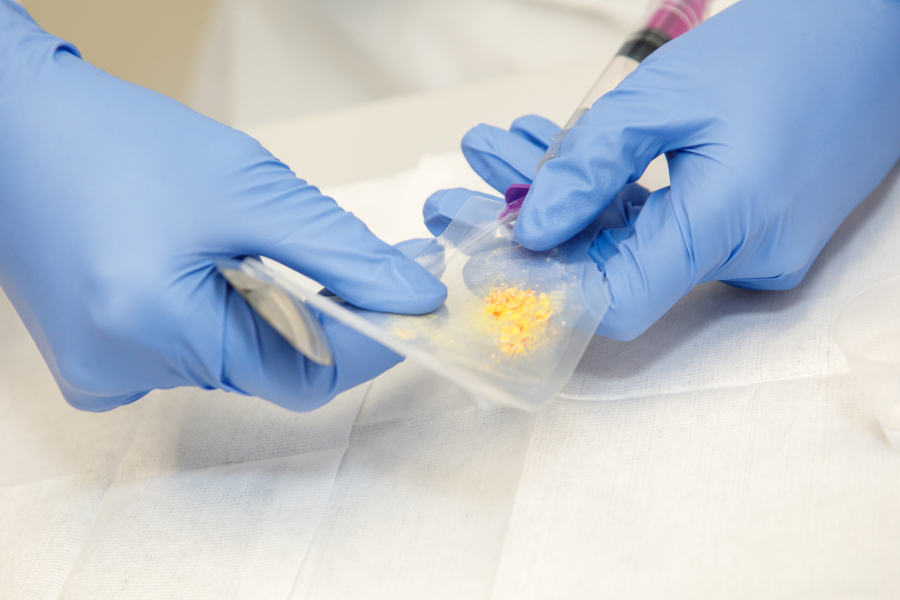
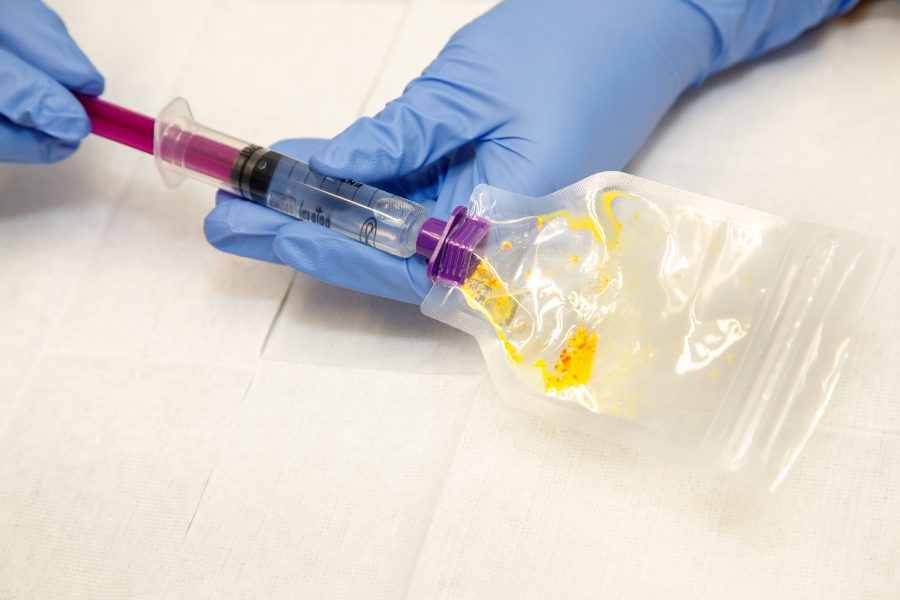
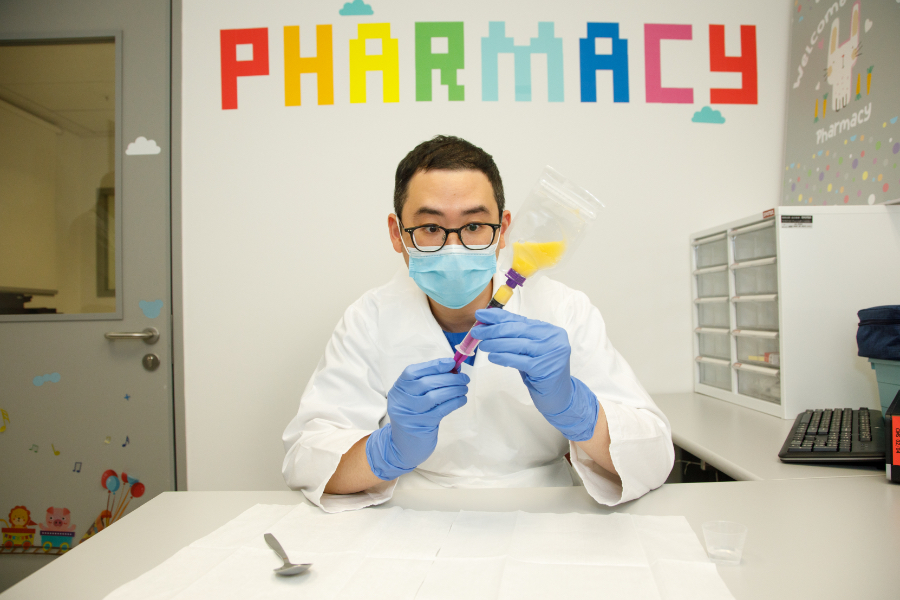
‘Sweet Potion’ Magic
Echoing the hospital’s children-centred and family-friendly theme, the team is always looking for ways to improve the medicine-taking experience of patients. In future, studies will be conducted with universities on converting more types of pill into liquid form while retaining their efficacy and stability. They will also explore how to mask the unpleasant and bitter taste of medicines to make them more appealing to children.